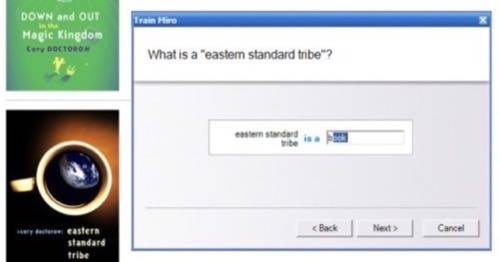Written by Guest Writer Steve Spalding
The idea of “Search” is a powerful concept. Whether it’s guide based like Mahalo, algorithmically powered like Google or driven by something as close to home as natural
language, like Powerset. Where there is information, there is a need to be able to
easily sift through it. So far, we have focused our attention on brute force solutions
to the problem of search. If an engine produces bad results, well then develop a better engine.
However another path that might provide a solution to this problem is a search engine that can do
our work for us – a search agent. Web services that can learn from our choices, to make
future searches more accurate.

Let’s take a closer look at a few search agents that are tackling search from
the perspective of the searcher, using our choices to improve their results and driving
the idea of search in compelling new directions.
Swamii
Swamii is a topic based search agent. You begin
your journey with Swamii by entering a topic. This could be anything from “swim
suits” to “Steven Spielberg”. After you enter this hook, Swamii conducts a search as
usual. The interesting bit is that the next time you return to Swamii, it will present
you with everything new it has found about your subject of interest, without forcing
you to re-enter these terms. Your results are broken down into broad categories (News,
Blogs, Shopping) and some more interesting ones like Peer to Peer and Television.

Unfortunately, as you add to your list of interests the results can become unwieldy – which makes it falter a bit as a general purpose search engine. All in all, this is a great
tool for tracking ideas as they progress through time. As a search agent it shines,
reducing the effort it would normally take to research similar ideas manually and sift through
results that you have already seen.
Rollyo
Rollyo is another beta product that tackles
the task of moving from search engine to search agent. This product is more of a
meta-search engine than Swamii. You customize your search based on the sources you wish
to search within. For example, if you only want results from the Washington Post and
Read/WriteWeb, you add those sources to your SearchRoll. All future searches are
conducted by searching within these sources. SearchRolls can be customized, and there are
a number of them that come pre-made for you. These custom search engines can also be
saved for future use.

What Rollyo lacks that separates it from a true search agent is autonomy. While the
engine “learns” from your behavior, it forces you to bookmark sites that you are
interested in before they can be used in your SearchRoll. This site is great if you have
a very specific set of sites that you know will contain the information that you are
looking for; and you want to filter out the rest. It’s not so great if your main interest
is to have a repetitive search conducted for you over time.
Swicki
Eurekster’s Swicki competes admirably as a
search agent. Once again, you start off by creating your own search engine. You select
the topics, you choose the sites you wish to include and you pick among common search
terms that you believe would be of interest to your users. After that, your new Swicki
takes on a life of its own. Your users can vote results up and down, and you have the
ability to completely delete entries from the result page. Ideally, in a short amount of
time this will create a “perfect” results page, geared towards your users.

The major flaw with Swicki is that it suffers from the problem that all community
based web services do: it only works optimally if you have enough users. Otherwise, it
more closely resembles a “guide-based” search engine than an intelligent search agent. A Swicki without
community is just a slick personalized search page.
However for the most part it works perfectly, you can write your own search results and subscribe
to an RSS feed which will deliver pertinent results to you.
[Ed: disclosure that Eurekster is a R/WW sponsor – there is a swicki in our sidebar]
A Glimpse Into The Future
To complete this review of software agents, a look into the future seems
appropriate. MIT’s Media Lab is spearheading a series of projects that may take search
into a realm that the current offerings only touch upon. Three projects of particular interest
are Creo, Miro and Adeo. Together, they form a matched set in semantic search.

Creo is a
programming tool that enables you to teach your computer how to autonomously interact
with Web sites based on a demonstration. Miro, the search module, will allow you to make
goal-based, semantic searches. For example if you want to find a cure for the common cold, it
will assist you in making searches that would most likely lead you towards a decent
cough suppressant. Adeo helps to streamline web interactions, minimizing the inputs and
outputs to only the most pertinent details.
Miro in action

Used together these MIT tools could allow you to automatically do goal-based searches with a
minimum amount of steps. You can see these tools in action
here.
Conclusion
Whether guided search, semantic search or algorithmic search wins the day is a
question for history, but in the meantime it will be the simplest solution that will draw
the most users. If any engine is to get a foothold into the hotly contested search
industry, it will have to combine accuracy and relevance with ease of use. Autonomous
search through agents may be one key to that puzzle.
Ed: Thanks Steve for this excellent post. On the same theme of search agents, check out Read/WriteWeb’s review of Allth.at earlier this year.
Agents pic: MrEddy





















